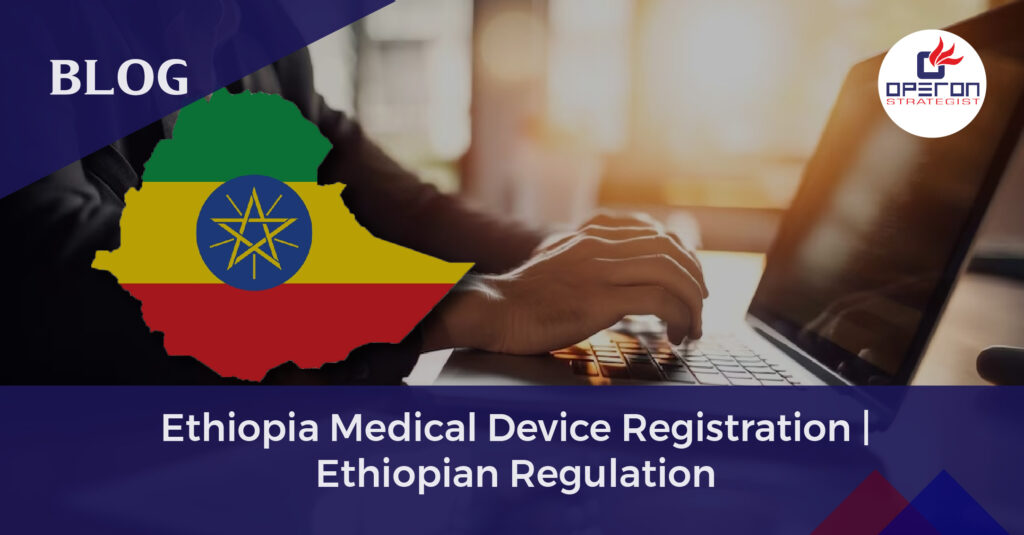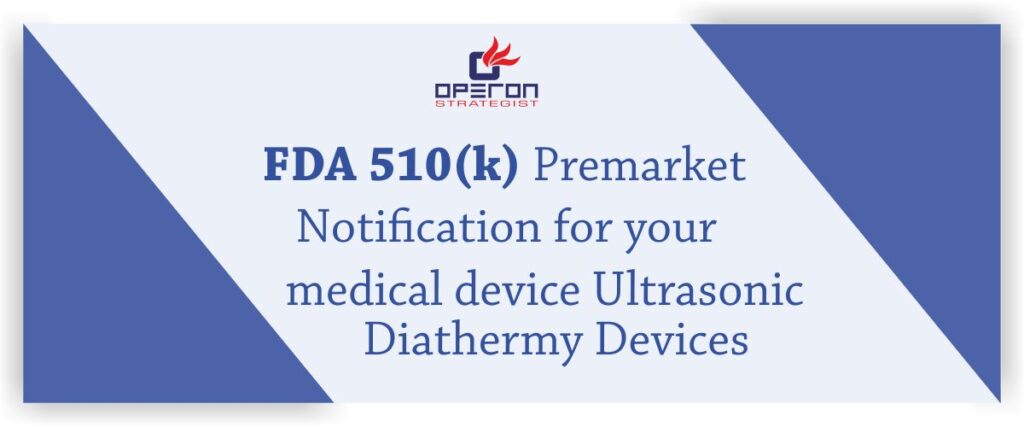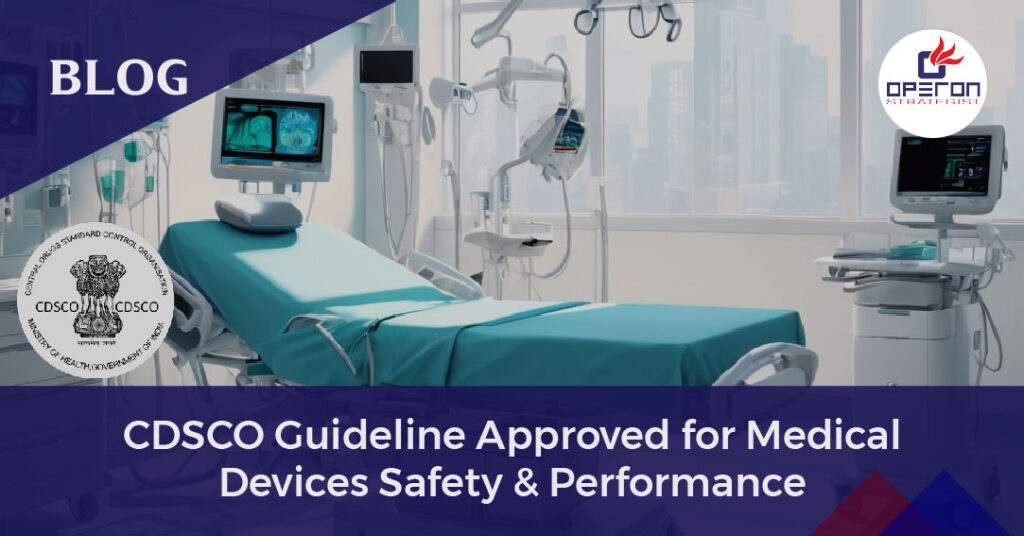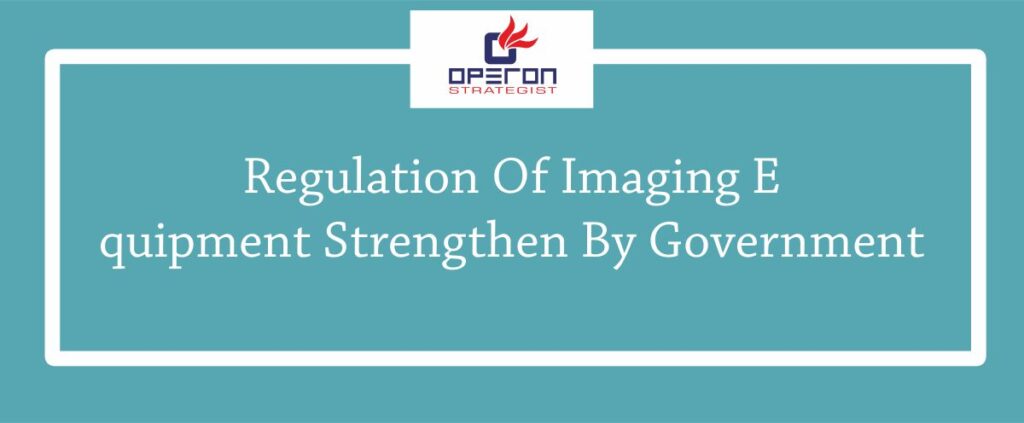Ethiopian Reulation : Overview
Ethiopia medical device registration taken care by EFDA (The Ethiopian Food and drug Authority).The Ethiopian Food and Drug Authority (EFDA) oversees regulation of medical devices in Ethiopia, by evaluating the quality, safety and effectiveness of the medical devices prior to registration and marketing authorization. Ethiopia is a nation in the north eastern segment of Africa, prevalently known as the Horn of Africa. Urbanization has consistently been expanding in Ethiopia, with two times of significantly rapid development. Ethiopia’s primary medical issues are said to be communicable (contagious) diseases worsened by poor sanitation and malnutrition. More than 44 million individuals (more than half the population) don’t approach clean water. These issues are exacerbated by the lack of trained doctors and nurses and health facilities. We have worked on Ethiopia medical device registration and many other East African countries. We ensure your manufacturing unit is suitable for all National/International regulatory norms and expected audits. We also help the East African countries manufacturers in their medical device registration, or if in any need of some regulatory support for their firm.
- Operon strategist is leading as a CE mark medical device certification consultant, the team of operon provide end to end service to get CE mark on medical device.
- To know more contact us or Whatsapp us
The Food, Medicine and Health Care Administration and Control Authority (FMHACA) of Ethiopia was set up to protect the health and security of patients, clients, and different people by guaranteeing that manufacturers of medical devices pursue indicated methods during the design, manufacture, and marketing for the regulation of medicines and healthcare products. Items managed by FMHACA comprise of human and veterinary drugs, radiopharmaceuticals, conventional medicines, insecticide, medical supplies and apparatus, hygienic items, cosmetics and raw and wrapping materials.
As per EFDA, what is a medical device?
It refers to any instrument, apparatus, implement, machine, appliance, implant, reagent for in vitro use, software, material or other similar or related article, intended by the manufacturer to be used, alone or in combination, for human beings, for one or more of the specific medical purpose(s) of:
- diagnosis, prevention, monitoring, treatment or alleviation of disease
- diagnosis, monitoring, treatment, alleviation of or compensation for an injury
- investigation, replacement, modification, or support of the anatomy or of a physiological process
- supporting or sustaining life
- control of conception
- disinfection of medical devices
- providing information by means of in vitro examination of specimens derived from the human body; and does not achieve its primary intended action by pharmacological, immunological or metabolic means, in or on the human body, but which may be assisted in its intended function by such means.
Ethiopia medical device registration & Classification
Regulatory Authority :
Medical devices in Ethiopia are regulated by the FMHACA (Food, Medicine, and Health Care Administration and Control Authority) regulatory authority.
Method of Classification:
The method of classification for medical devices other than IVD medical devices stated in this Guideline depends on the intended use of the device, indications for use, the span of utilization, level of invasiveness, and local vs. systemic impact of the device. The technique of classification for IVD medical devices depends on individual vs. public health risk and on the intended use of the device either by laypersons and/or health professionals. The basic rationale for classification of the device is to proportionate the risk of the device and the technical requirement addition; the classification is risk-based, that is, the possibility the device presents to the patient and/or user is the main point which is determining to which class it is assigned.
Classification of Medical Devices in Ethiopia
Based on the hazard presented by the particular medical device on its intended use and the technology it utilizes, medical devices are classified into four risk classes. General factors, that are considered during classification include, whether the device is life supporting or sustaining, invasiveness, whether it incorporates medicinal products, whether it is active or it delivers energy, etc. These classes are listed below:
| Class | Risk Level |
| I | Low Risk |
| II | Low-moderate Risk |
| III | Moderate-high Risk |
| IV | High Risk |
Table 1: Classification system for general medical devices
For in vitro diagnostic (IVD) medical devices, following factors are considered during risk classification: intended use and indication specified by manufacturer, technical/scientific/medical expertise required for use of device, importance of information to the diagnosis, impact of result on individual and/or public health. Classes of in vitro diagnostic (IVD) medical devices are as follows:
| Class | Risk Level |
| A | Low Individual Risk and Low Public Health Risk |
| B | Moderate Individual Risk and/or Low Public Health Risk |
| C | High Individual Risk and/or Moderate Public Health Risk |
| D | High Individual Risk and High Public Health Risk |
Table 2: Classification system for in vitro diagnostic (IVD) medical devices
Grouping of Medical Devices for Marketing Authorization Application
For better application submission principles for the various categories of medical devices that can be bundled and submitted together, grouping criteria that applies to all medical devices and also device specific grouping is provided in two separate guidelines:
- Guidelines for general grouping of medical devices
- Guidelines for device specific grouping
Essential Principles of Safety and Performance
Essential principles of safety and performance for medical devices elucidate fundamental design and manufacturing requirements that are required to provide assurance that a medical device is safe and performs as intended, by the manufacturer. It is the responsibility of the manufacturer to demonstrate compliance with essential safety and performance requirements.
Conformity Assessment
Conformity assessments are intended to provide the objective evidence of safety, performance of the medical devices. Conformity assessment is conducted throughout life cycle of medical device at appropriate timepoints. Conformity assessment is done in the context of the established regulatory requirements and both the process and conclusions are subjected to further review by EFDA. The degree of involvement EFDA in these reviews depends on risk associated with device. Conformity assessment elements are as follows:
- Quality Management System
- System for PMS
- Technical Documentation
- Declaration of Conformity
- Registration of manufacturers and their medical devices by the authority
Quality Management System :
ISO 13485 Certification for Medical devices is a quality management system required for regulatory purposes which is an ISO standard, it was published for the first time in 1996, that represents the requirements for a comprehensive quality management system for the design and manufacturing of medical devices.
Ethiopia medical device registration
Medical Devices and IVDs are subject to the registration process. For representing the manufacturer to the Regulatory Authority, a local representative should be appointed. The appointed Local Representative should have a permit (issued by the Ministry of Trade) and a certificate of proficiency (issued by FMHACA) at the time of importation of the product. Application procedure must be performed by the Local Representative only.
Registration of Medical Devices Approved by SRA
EFDA recognises status of product in countries with stringent regulatory authority (SRA). Purpose of this route of registration is to increase efficiencies and avoid duplication of effort and to reduce the time required to evaluate the products compliance with the EFDA’s requirements. EFDA recognises marketing authorization certificate or registration certificate or free sale certificate issued by either of the following:
- USFDA
- Ministry of Health, Labour and Welfare, Japan
- Therapeutic Goods Administration, Australia
- Health Science Authority, Singapore
- Competent Authorities from either of member states of European Union
- MHRA, UK
- Health Canada, Canada
- Ministry of Food and Drug Safety, South Korea
Furthermore, it also recognizes:
- Evidence for WHO prequalification
- Evidence for UNFPA prequalification
Exemption of Medical Devices from Registration
EFDA does not mandate the registration of medical devices which are to be used in following circumstances:
- Custom made & personal use devices
- Devices for national health emergency
- Investigational devices
- Devices for research, education and other non-clinical uses
Application Review and Marketing Authorization
All applications submitted for marketing authorization pass through two stage review process.
- Stage1Screening: It ensures completeness & eligibility of the application for the approval pathway
- StageII :Assessment
It includes the thorough evaluation of the submitted administrative and technical documents against applicable regulatory requirements
Upon successful application review, i.e., if provided information and the submitted documents are found to be complete and satisfactory, the marking authorization certificate is issued.
Time Frame of the device registration : In general, it takes about 3 to 6 months to get approval for new registrations. Just in case of alterations/changes from the current registrations, the timeframe will be actually the same.
Applicant : Local Representative.
The validity of License: For five years the license is issued in Ethiopia.
Labelling and documentation language : Documentation and labelling can be provided in English. All classes of medical devices should be properly labelled based on the justification and information provided with the registration dossier. The Labeling serves to communicate safety and performance-related information to users of medical devices and/or to patients, as well as to identify individual devices. Such data may show up on the device itself, on the packaging details segment.
Operon Strategist is a medical device consulting company. We are expertise in handling Medical Device Turnkey Projects all around the world And have experience of setting up small, medium and large medical device manufacturing facility in every domain of medical devices. We have an impressive portfolio with existing industry giants which makes us competent for undertaking any project. As we already have completed and have some project in progress at various global locations. Our Online Screen Sharing module facilitates effective training of the individuals of the organization. Projects deliverables and timelines are tracked/handled through meticulous planning by our team.
- adminhttps://operonstrategist.com/author/admin-2/
- adminhttps://operonstrategist.com/author/admin-2/
- adminhttps://operonstrategist.com/author/admin-2/
- adminhttps://operonstrategist.com/author/admin-2/




